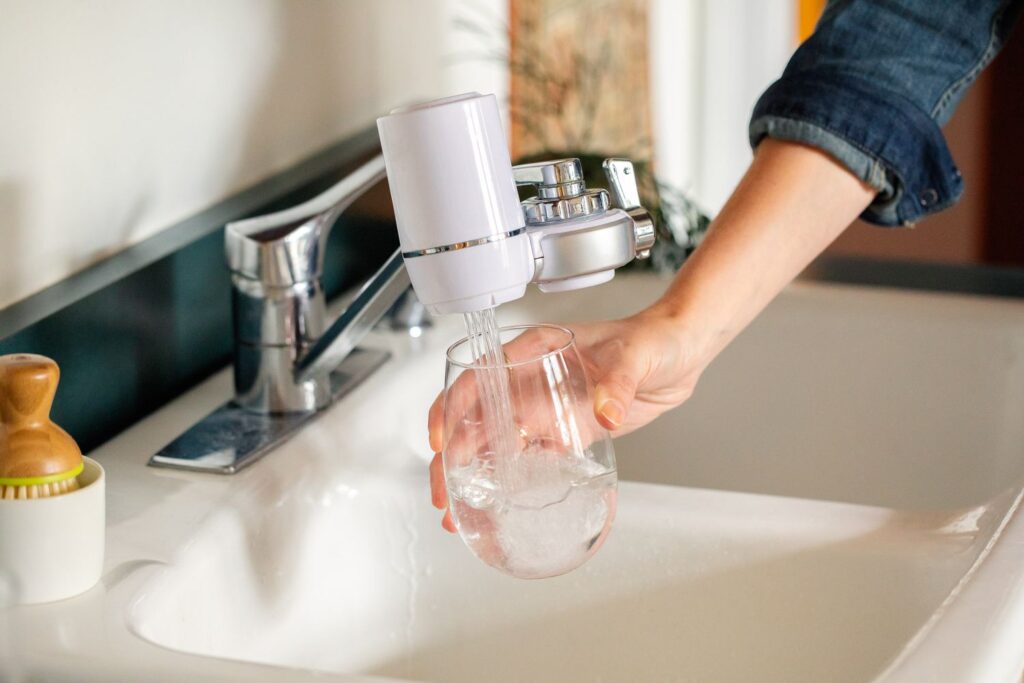Water is one of the most essential elements of life, and clean water is vital for maintaining a healthy lifestyle. With contaminants such as lead, chlorine, and bacteria in our water supply, it’s more important than ever to invest in a high-quality water filtration system. Not only will this ensure that the water you consume is safe and clean, but it can also significantly improve the taste and odor of your drinking water. Choosing the right filtration system for your home or business can be a daunting task, with so many options available. Factors such as the type of contaminants in your water, the level of filtration required, and the cost of the system must all be taken into consideration. In this blog post, we will explore the importance of clean water, the different types of water filtration systems available, and how to choose the right one for your specific needs. Clean Valley Water Las Vegas is dedicated to providing the highest quality water treatment services to ensure that the community has access to clean and safe drinking water.
1. Understand the Different Types of Filtration Systems
As we become more aware of the impurities and contaminants that can be present in our water supply, choosing the right filtration system is becoming increasingly important. To ensure that you and your loved ones have a safe and healthy source of drinking water, it’s vital to understand the different types of filtration systems that are available. There are three main types of filtration systems: mechanical, adsorption, and reverse osmosis. Each type is designed to remove different types of contaminants, depending on the specific needs of your water source. Understanding the advantages and disadvantages of each type of system is key in choosing the right filtration system for your home or business.
2. Analyze Your Water Quality

Analyzing your water quality is an essential step when it comes to choosing the right filtration system. Water quality can vary from one region to another, and even from one household to another. Analyzing the water quality will help determine the type of contaminants present in the water and the extent to which they pose a health risk. Water quality testing can reveal the presence of harmful contaminants such as lead, bacteria, pesticides, and other harmful chemicals. Understanding the composition of the water in your area will enable you to make an informed decision about the type of filtration system you need to ensure clean and safe drinking water. It is recommended that testing should be done by a certified laboratory for accurate results. The information obtained from water quality analysis will guide you in selecting the right filtration system to meet your specific needs.
3. Evaluate Your Budget
One of the key factors to consider when choosing the right water filtration system for your home is your budget. Before making any purchasing decisions, it is important to evaluate your financial capabilities and determine a realistic budget. Water filtration systems can vary greatly in price, with some basic models costing only a few hundred dollars and more advanced systems costing several thousand dollars. Additionally, the ongoing cost of filters and maintenance should also be factored into your budget. By setting a budget and researching products that fit within that budget, you can ensure that you are making a wise investment that is both effective and financially feasible for your household.
4. Consider Your Usage Requirements
When choosing the right filtration system for your home or business, it is crucial to consider your usage requirements. This involves evaluating factors such as the amount of water consumed daily, the number of people using the water, and the frequency of filter replacement required to ensure optimal performance. By assessing these usage requirements, you can select a system that is tailored to meet your specific needs, ensuring that you have access to clean and safe water at all times. Additionally, considering these requirements can help you avoid overspending on a system that is too large or complex for your needs, or underspending on a system that cannot keep up with your usage demands. Therefore, it is important to carefully analyze your usage requirements when selecting a filtration system for your home or business.
5. Seek Professional Assistance for Installation and Maintenance

When it comes to installing and maintaining a filtration system for clean water, seeking professional assistance is an important step to take. Professional installers have the knowledge and expertise required to properly install the system, ensuring that it functions efficiently and effectively. Additionally, regular maintenance is necessary to keep the system in good working order and to maintain clean water. While some individuals may attempt to install and maintain the system themselves, it is important to recognize the potential risks of doing so without professional assistance. Inexperienced individuals may damage the system or install it improperly, compromising the quality and safety of the water. Therefore, it is highly recommended to seek out reputable professionals with experience in installing and maintaining water filtration systems for optimal results.
To sum up, access to clean water is a basic human right, and it’s essential to use the right filtration system to make sure your water supply is healthy and safe. There are many filtration options available, ranging from basic pitchers to whole-house systems, and it’s important to choose one that fits your needs and budget. Remember to consider factors like water quality, flow rate, and maintenance requirements when making your decision. By taking the time to research and choose the right filtration system, you can ensure that you and your family have access to clean and healthy water for years to come.






